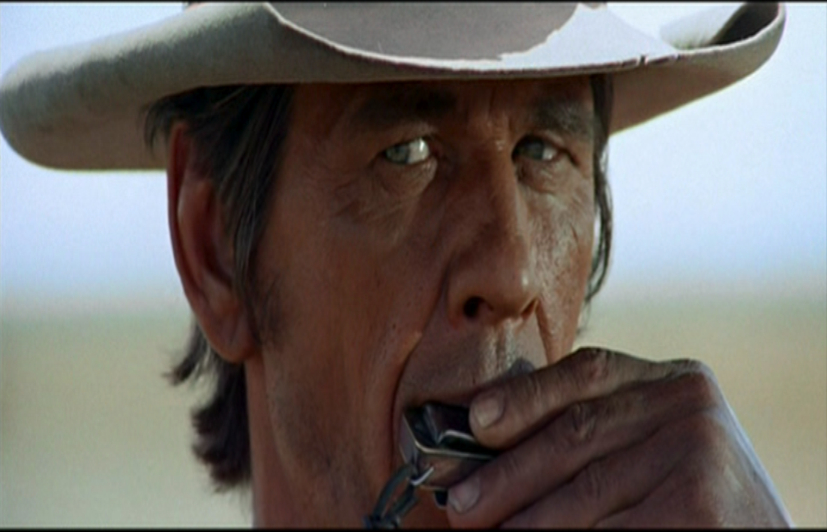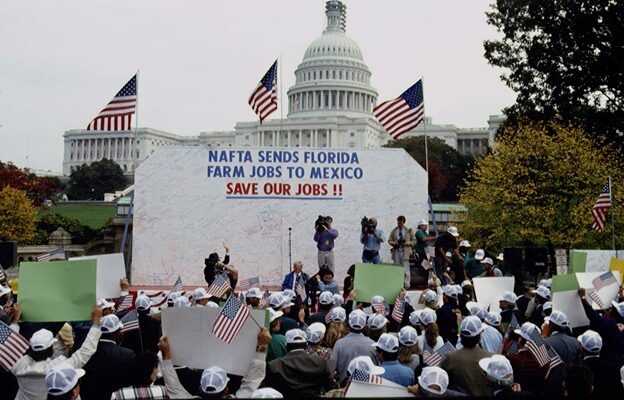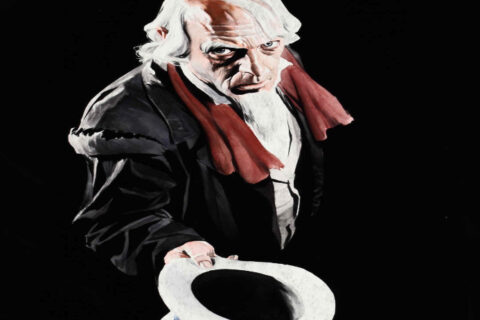I used to be a free trader. I hated taxes, even before actually paying any, and it’s pretty clear that a tariff is a tax. Plus, I have strongly identified as a Dixian for as long as I can remember, and we were always taught how the Yankees put up a tariff to help force us to buy their more expensive goods in favor of the cheaper British goods (something that was one of the major causes of the War). To oppose a tariff and also support free trade was the proper position for a Southerner to hold, and it was the position of the great John C. Calhoun. But something about this always gnawed at me.
I was also a pretty big Pat Buchanan fan, and trade was one of the points of his “America First” crusade in the 1990s. I grew up in a world where anti-UN sentiment was very high and warnings about NAFTA being part of a globalist plot resonated with me. To make matters more perplexing, I knew that much of the rest of the world had significantly lower standards of living than Americans did, and to ask Americans to compete with Mexicans, much less Bangladeshis, was a ludicrous request. Plus, NAFTA was made possible by Bill Clinton, a name that was a curse word in my house. But at the end of the day, it was still a tax. Plus, as I read history, I realized just how much in agreement economists were that the Smoot-Hawley Tariff made the Great Depression even worse. And this was not just the opinion of libertarians, but almost all economists. It was an issue I felt conflicted on and would go back and forth on, even as I defended free trade.
Enter Ron Paul. When Ron Paul ran for president in the 2008 election, I was hooked immediately. Much like Buchanan, he courageously fought the American Empire. Much like John C. Calhoun, Paul also ardently defended the rights of the states against the overreaching federal government and even defended the Confederacy. Famously, there is a picture of him giving a speech against the backdrop of the Confederate Battle Flag. Ron Paul also had a pretty fascinating opinion on free trade. He supported free trade but was anti-NAFTA (and other similar free trade agreements). As Paul pointed out, NAFTA was the North America Free Trade Agreement (with an emphasis on the last word). Though it claimed to be free trade, it was actually a treaty made by squabbling diplomats arguing over every part of it. In other words, it was not really free trade, but rather government managed trade. True free trade would mean the simple elimination of tariffs.
It’s a position I went on to hold for the next several years, and one I still intellectually appreciate. But it is also one I no longer see as practical. It sounds nice, but it depends on others acting in good faith, and that is not something that can be assumed. Other nations can still keep their tariffs. China is a very good example of this. The U.S. opened its market up to China, but China has not returned the favor, and to what extent they have opened up China, it always comes with serious strings attached. While American companies are asked to actually compete, China props up its favored companies with subsidies, allowing them to undercut their competitors by selling at a loss. It was a bad deal that is destroying the American middle-class, and there is no way to stop it other than not allowing China to dump cheap products in the American market.
Does this mean that John C. Calhoun was wrong or, more broadly, that Dixie was incorrect about the tariff before the War? No, because of the different economic conditions in the 1850s versus the 1990s. I think the problem here is a tendency to view economics in terms of absolute maxims. And those maxims do exist, that private property is a natural right is one that immediately jumps to mind. But for the most part, the specific economic conditions of a given period should guide policy. In the Antebellum era, tariffs were terrible for Dixie, especially as an agrarian society with minimal heavy industry. By contrast, tariffs were a positive for a North that was growing as an industrial power (with dreams of eventually surpassing Britain). The fact that both Dixians and Yankees were living in the same political union, no matter how ill advised that alliance was, made this even sharper – the Yankees were going to use the South as a steppingstone to become a global power.
But this was not the case in the early 1990s. Though still largely agrarian, Dixie had been slowly developing an industrial base, especially since the 1970s as companies increasingly left the high taxes and regulations of the North in favor of a friendlier climate in the South. Then, NAFTA came in and that industrial base was cut off – while Dixie was cheaper than the North, Mexico was cheaper than both. This put the South in a very weird position. No longer agrarian as she once was, but Dixie was also not really industrialized either. In many ways, this created a “worst of both worlds” situation, no longer distinct as she once was, but also lacking the industrial base to be self-sufficient. Industrialization in the South was, and always has been, a half-hearted mess. One can see the disastrous effects of free trade in North Carolina. At one time, North Carolina had a strong textile and furniture manufacturing base. NAFTA killed that and helped move the state from being one that elected Jessie Helms to one almost not even considered Southern. After the textile and furniture manufacturing base was destroyed, North Carolina had to change its economic core to banking and Big Tech, both of which have been a major driving force with flooding the state with leftists.
Similar principles can be applied to a Free Dixie. The tariff was a problem in the context of the American Union in 1860, it enriched the North at the expense of Dixie. But in the context of a Free Dixie, this is very different – a tariff becomes a way to make other nations act in good faith, keep foreign companies from buying up key parts of the Southern economy, and protect our own middle and working class. John C. Calhoun was right in his day and Pat Buchanan was right in his, the economic conditions of 1860 and 2022 are very different. I know of no one who would deny this, and what policies we pursue must reflect this difference.
As a Southern Nationalist, I am guided first and foremost by what is good for Southerners. Free trade was to our benefit in 1854 due to the economic conditions at that time. But this was not the case in 1994, and it is not the case today. It would have not been the case had we won the War and become independent. So-called free trade today benefits China, the Third World, and giant transnational corporations. The economic policies we pursue, both now and in the event we are ever free, must be first and foremost guided by a simple question – “What is good for Dixie?”







Exactly the economy should serve the nation not vice versa. Today we have the west slaving for international finance and it’s killing us.
Exactly, and even if free trade makes the economy boom at what cost? It puts people and culture at the expense of capital.
Capital should serve the national interest, not vice-versa as it is in the Disunited States today. Having said that, it is obviously in the incipient interest of Dixie to pursue an reindustrialization policy. Southerners should be manufacturing most of what they consume economically. The only exceptions should be for luxury goods and those items which cannot possibly be manufactured domestically at a reasonable cost. Industrial policy should also go hand-in-hand with an agricultural policy.
Dixie will have a lot of good quality agricultural land, and there is no reason for us not to be able to feed ourselves. But it will not serve the national interest for a large and growing proportion of our land to be held in corporate plantationions. The farm holdings of people like Bill Gates must be broken up, confiscated if necessary, and sold at a reasonable rate in order to form more small to medium sized family farms.
The small towns of Dixie must be repopulated, so rural development must be a priority. Infrastructure must be beefed up, not just our rural highways and roads, but also health care, digital, and other transportation options. If rural areas offer people good jobs along with a better lifestyle, then our cities will shrink to more managable sizes and our nation will be healthier, physically, mentally, and spiritually.
“hear, hear”, Spot ON!
Mr. Harmonica …
Ronpaulinstitute.org; Mises.org
When tariffs were profitable for the Northern rich we had tariffs. When “free trade” is profitable for the Northern rich we have “free trade.” Has nothing to do with the health of America or the truth of any doctrine.
OP TL;DR = “ideology smihdeology, we don’t need no stinkin ideology!”
Ive always like Pat Buchanan and his ideas.He said years ago that a country must only import things that it cannot make or gain from its land.I voted GOP but never liked the people in control.They always made sure we got Lindsay Graham or Nikki Haley but never a Pat Buchanan.Free trade sucks,only benefits the plutocratic Jews who own both Dem/GOP.Now in my 50’s I’m done voting,it makes no difference.I used to think it must but now I’m convinced it doesn’t.Good article.God bless you and thanks for your efforts.